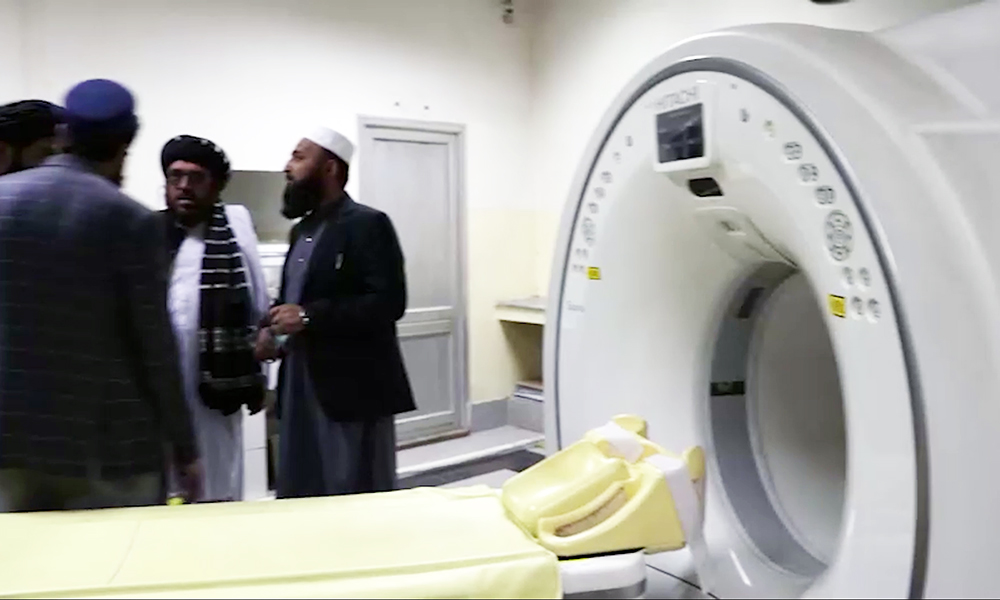Health
US and Britain roll out campaigns after poliovirus detected in water samples

The detection of poliovirus in wastewater samples from New York and London has sparked fears of a possible public health crisis but health experts in the United States believe that the virus is unlikely to secure widespread transmission in the country, especially in highly vaccinated areas.
Medical Daily reported that the US declared the eradication of poliovirus in September 1994, and not many people are aware of the disease it causes and its symptoms at present. There is also limited awareness on how it spreads.
According to the Centers for Disease Control and Prevention (CDC), poliovirus spreads through person-to-person contact and other ways, such as the oral-fecal route and droplets.
Poliovirus is so contagious it can contaminate food and water in unsanitary conditions. Transmission is inevitable when a person makes contact with the feces from an infected person while infection via droplets from a sneeze or cough is less common, Medical Daily reported.
The CDC noted that an infected person could spread the virus almost immediately before and up to two weeks after the symptoms of the disease appear. Once the virus enters the mouth, it can stay in the intestines for many weeks. Asymptomatic people can still pass the virus to other people and make them sick, the report read.
Last month, the US reported its first case of polio in almost a decade.
Meanwhile, Britain rolled out urgent polio vaccinations this week for all London-based children below 10 after the discovery of polio traces in sewage samples across several London boroughs. The move was made after the detection of polio in wastewater samples from New York, London and even Israel sparked fears of a wider outbreak.
Among the symptoms of polio, paralysis is the one most commonly associated with the disease since it can lead to permanent disability or even death. Scientific data showed between 2 and 10 out of 200 infected people develop paralysis and die because the virus can significantly impact the muscles used for breathing.
Since there is no cure or specific treatment for paralytic polio, patients rely on long-term physical or occupational therapy to help them with arm or leg weakness.
Health
Azerbaijan urged to help improve capacity of Afghan health workers

Acting Minister of Public Health Qalandar Ebad, in a meeting with Azerbaijan’s ambassador, Ilham Mohammadov, called for the country’s assistance in improving the capacity of Afghanistan’s health workers.
The two sides also discussed cooperation in the health sector, capacity building of Afghan health workers, and Azerbaijan’s role in the health sector and other issues, according to a statement released by the Public Health Ministry.
Azerbaijan’s envoy said that his country seeks to cooperate with Afghanistan in a sustainable manner in the field of health.
In other news, the foundation stone for the construction of oxygen production facility was laid at the Indira Gandhi children hospital in Kabul.
Officials of the Ministry of Public Health said that the facility will be built with the financial and technical assistance of the World Health Organization, and with the capacity to produce 200 cylinders of oxygen daily to meet not only the needs of the hospital, but also other health facilities.
Health
Balkh health officials report sharp increase in number of cancer patients

Balkh Public Health Department officials say there has been a significant increase in the number of patients with cancer in the province.
“In 1401, about 2,613 OPD (out patient department) cases were registered with us. In 1402, these figures were 4,912 cases,” said Ehsanullah Kaliwal, the head of the oncology department at Balkh Regional Hospital.
Some doctors say genetic factors, environmental pollution, arbitrary use of medicines, and excessive consumption of meat were reasons for the sharp increase.
One doctor said cancer was also hereditry.
However, a large percentage of cancer patients in Balkh have stomach cancer. Many of them have appealed for the government to improve treatment facilities.
According to health officials, in the first month of this solar year (April), 423 cancer patients visited this hospital for treatment.
Health
Majority of Afghans with mental disorders are women: officials

Based on last year’s data, 52 percent of people with mental disorders in Afghanistan are women, the Ministry of Public Health said.
However, after the Islamic Emirate took over the country and with the improvement of nationwide security and the provision of better health services, mental disorders have decreased, the ministry said.
“Overall, the mental security of men and women in Afghanistan is not ensured and their mental security is disturbed. According to the figures shared with us, in 2023, 52 percent of the visitors for mental disorders were women,” said Sharaft Zaman Amarkhil, the spokesperson of the Ministry of Public Health.
“Generally speaking, we can say that compared to the past, the instances of mental illnesses have decreased,” he added.
People suffering mental disorders mostly refuse to share their problem, willingly or unwillingly.
“There are many problems at home; We are poor. I finished school, but didn’t find any job,” Ansar, a mentally ill person, said.
According to the World Health Organization (WHO), half of Afghanistan’s population suffers from mental distress.
Factors such as unemployment, poverty, domestic violence, ban on girls’ and women’s education and work, and drugs are said to be key contributors to mental distress.
-

 Latest News4 days ago
Latest News4 days agoPakistan’s frontiers minister stresses ‘dignified’ return of Afghan refugees
-

 Regional3 days ago
Regional3 days agoIranian president lands in Pakistan for three-day visit to mend ties
-

 Climate Change4 days ago
Climate Change4 days agoMassive river flooding expected in China, threatening millions
-

 Latest News2 days ago
Latest News2 days agoRashid Khan named AWCC’s brand ambassador
-

 Latest News5 days ago
Latest News5 days agoChinese keen to invest in Panjshir-Kabul water conduit project
-

 World4 days ago
World4 days agoTwo Japan navy helicopters crash, one body found, 7 missing
-

 Sport3 days ago
Sport3 days agoKolkata beat Bengaluru by one run in IPL as Kohli fumes at dismissal
-

 Sport3 days ago
Sport3 days agoACL: Aino Mina 3-0 Istiqlal Kabul; Attack Energy 3-0 Khadim
























